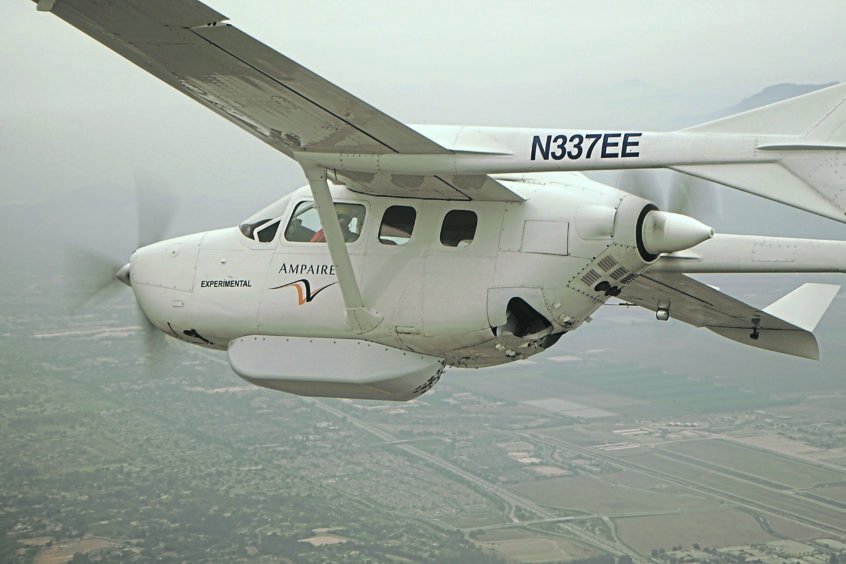
Orkney is to become a “living laboratory” in a £3.7 million scheme to establish the UK’s first operationally-based low-carbon flight test centre.
Electric-powered aircraft will be tested, along with others powered by hydrogen or sustainable aviation fuels during the 18-month Sustainable Aviation Test Environment (Sate) project, based at Kirkwall Airport.
It will also explore the use of drones to deliver medical supplies to health centres and ways of creating zero-carbon air terminal infrastructure.
The project is being led by Scottish Government-owned Highlands and Islands Airports (Hial).
Part-funded by UK Research and Innovation, through the Industrial Strategy Challenge Fund, it is being launched as part of the organisation’s Future Flight Challenge.
Companies taking part in the short flight trials will include Ampaire, ZeroAvia, Loganair, Windracers and Flarebright.
The European Marine Energy Centre, Denchi Group, Cloudnet, and Air Services Training will also be involved as partners in the Sate project, along with the University of the Highlands and Islands, the Highlands and Islands Transport Partnership, Highlands and Islands Enterprise and Orkney Islands Council.
Hial managing director Inglis Lyon said: “Project Sate will place the Highlands and islands at the vanguard of the adoption of next-generation aircraft and spearhead the aviation industry’s response to climate change.
“The project will identify the necessary supply chain and people skills to support the development and testing of the new technologies, with the aim of developing a Highlands and islands sustainable aviation sector, stimulating inward investment and local supply chain opportunities.
“It will also measure local community appetite for the new aircraft technology, especially on lifeline regional routes, and the potential impact on the regional economy from the adoption of these new technologies.”
The Transport, Infrastructure and Connectivity Secretary Michael Matheson commented: “This is a very exciting project and it’s fantastic to see Highland and Islands Airports take the lead to create the UK’s first low-carbon aviation test environment.
“This test centre has the potential to put Scotland at the forefront of the transition to low carbon aviation.
‘‘It is an important step towards delivering our commitment to decarbonise scheduled passenger flights within Scotland by the year 2040.”
